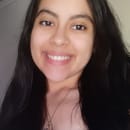From my earliest recollection, I have always loved to read. In grade school I was obsessed with the Mo Willems series “Don’t Let the Pigeon Drive the Bus,” and Beverley Cleary’s “Ramona,” series. In my middle school years, I gravitated to whatever dystopian fiction book happened to be popular that year, including Suzanne Collins’ “The Hunger Games,” series and Ally Condie’s “Matched,” series. Finally, in high school I just wanted to read books that spoke to my experience going through the highs and woes of adolescence. This is where I began reading more stand-alone realistic fiction novels including John Green’s “The Fault in Our Stars,” and Katie Cotugno’s “How to Love.” While my Lexile level increased with age, the category of books I read remained the same: young adult fiction.
Other categories of fiction including the 19th and early 20th century literature assigned to me in my high school English classes often held no appeal to me. The same applied to adult fiction, which often featured a 30-year-old protagonist in the height of their career, dealing with some life problem my high school self could not relate to.
Freshman year of college came around and I began to worry that I would never graduate out of the world of young adult fiction. Throughout my six semesters of college, I have often been assigned various non-fiction books. Many I disliked for a variety of reasons not limited to their often dense nature. Until one book assigned to me in my 4th semester changed my perspective. The book was titled: “A Surgeon in the Village: An American Doctor Teaches Brain Surgery in Africa.” While the novel itself was interesting, ethically complex, and thrilling, what really appealed to me was how relevant the novel was to me as a public health major. I realized that just as my high school self craved stories that I could relate to in my coming of age, my college self wanted to read stories about real life issues and problem solving outside of my college microcosm.
Fast forward to the summer before my senior year of college, I have just come home from my semester abroad studying public health and humanitarian responses in Amman, Jordan and all I wanted to do was read. It is that summer that I tear through some of the best books I have ever read including David Quammen’s “Spillover,” a scientific journalist’s take on some of the world’s most relevant zoonotic disease concerns. As well as Barbara Natterson-Horowitz’s “Zoobiquity,” which details the connections between human and animal health, and Steffanie Strathdee’s “The Perfect Predator,” which recounts the story of a epidemiologist working to save her husband against the threat of an antibiotic resistant infection.
I have learned throughout these few years of college that non-fiction can be captivating, urgent, and relevant to me as a person, and to the world’s many problems. Reading non-fiction can help you discover your life’s passions and career aspirations, as well as identifying a real-world issue that you would like to help solve one day. Reading non-fiction is also a great way to read about topics you are only slightly interested in or have no previous knowledge about and want to hear an expert’s take or information on a subject. This is how I ended up reading a book about fungi called “Entangled Life” by Merlin Sheldrake, and one about dinosaurs called, “The Rise and Fall of Dinosaurs” by Steve Brusatte.
Something I have also come to understand is that loving non-fiction does not mean you have to stop reading, or are now “too old” to read young adult or adult fiction. I still love reading a good murder mystery, or a thrilling dystopian novel every once and a while. Last summer, between the various investigative sciences I enjoyed, I found time to indulge in “The Summer I Turned Pretty” novels by Jenny Han in anticipation of the new Amazon Prime TV series. I even read perhaps the strangest but most endearing story about dairy cows called, “Meditations with Cows” by Shreve Stockton.
Whether you are just beginning your journey into the exciting world of non-fiction books, or have always enjoyed them, remember it is okay to be a kid at heart, and to read that newest book by your favorite author from middle school. Reading any book regardless of genre or category exposes you to new worlds and new perspectives. Now go ahead and curl up on your couch or your favorite study spot and crack open a book.


